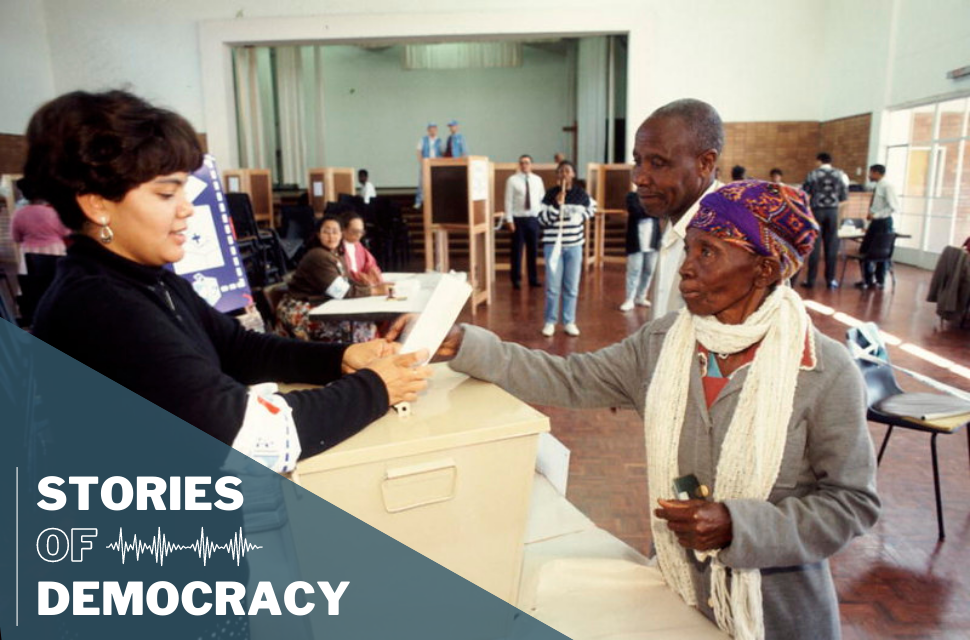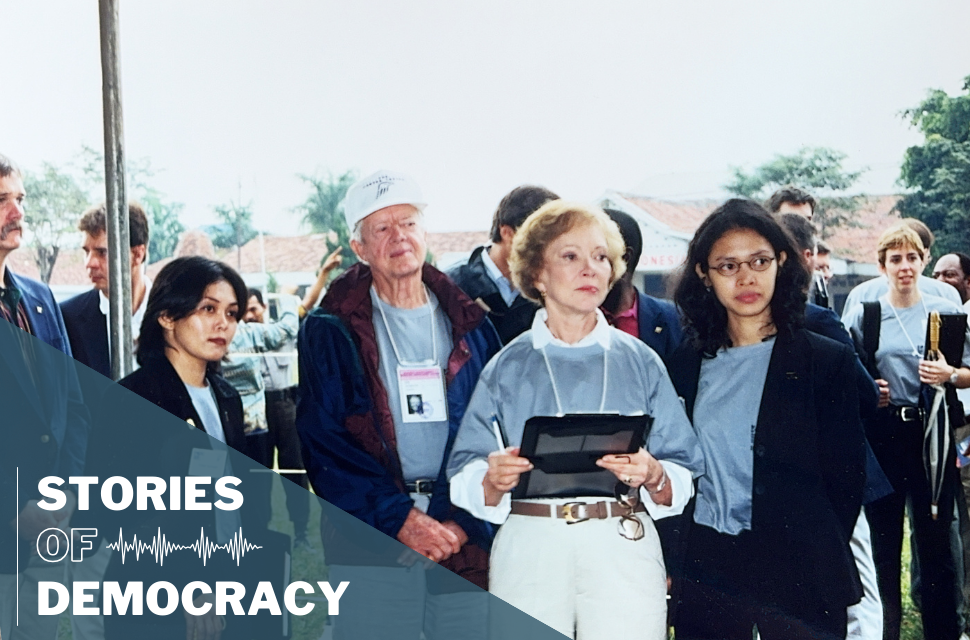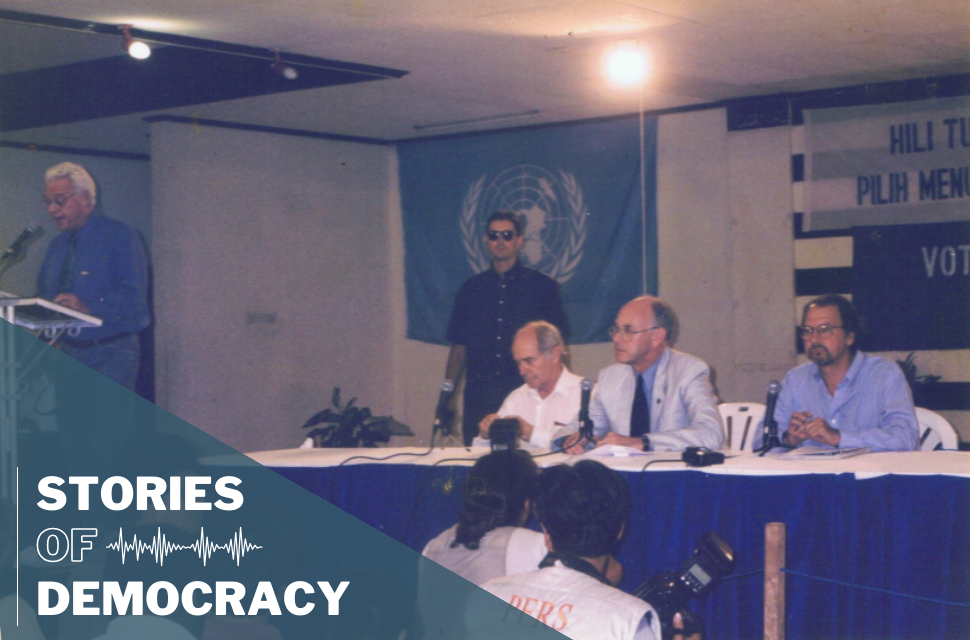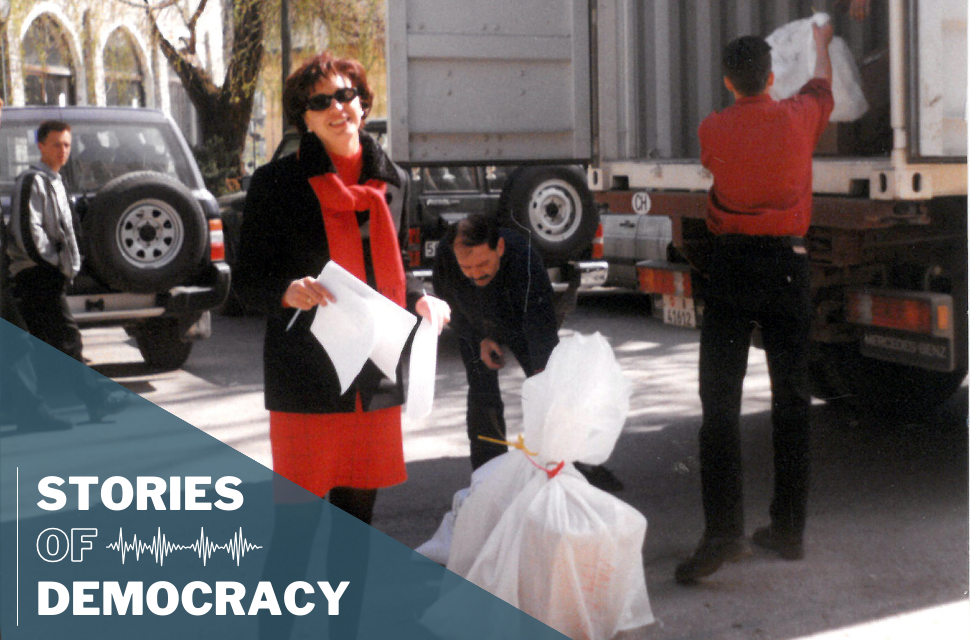South Africa - 1994 - Presidential and National Assembly Elections

In 1994, universal suffrage was achieved in the South African elections. Judge Johann Kriegler recalls his time as head of the Independent Electoral Commission for these historic elections. The 1994 South African elections were the first in which citizens of all races were allowed to participate.
The elections marked the end of a four-year transitional period, a violent time in which negotiations were made regarding the fate of liberation movements like the African National Congress and the Pan Africanist Congress. The efforts by the more extreme elements of the ruling Nationalist Party to influence these negotiations by force and intimidation received significant international attention, leading to the formation of an Independent Electoral Commission for the upcoming general elections. Prior to the elections, South Africa adopted a new flag, Constitution, and Bill of Rights. This new constitution abolished the system of “homelands” for the black population, as well as the policy of racial apartheid in the country. A total of 19.5 million South Africans exercised their suffrage rights in the country’s first democratic elections.
The Independent Electoral Commission, of which Justice Johann Kriegler was head, faced several challenges in the pre-election period. One of the major challenges was the education of the electorate —many of whom had never been allowed to vote in previous elections— on the basic elements of democracy and electoral procedures. There was also a good deal of skepticism among the South African voters, as previous elections had been manipulated.
Additionally, incidents of political violence in the campaigning period served to frighten some voters away from the polls. Judge Kriegler speaks about the challenges faced by the IEC in the pre-election period: “Our mandate, plain and simple, was to deliver a substantially free and fair election on that day. At our first meeting, on 4 January, we resolved that – come hell or high water – that was going to happen. We didn’t know it was impossible. When, in our mad rush, experts told us that at least a year was necessary, we nodded and carried on. The country’s latest census figures were suspect. We had no voter roll and couldn’t compile one in the time available. Many voters had no proof of eligibility, the majority had never voted before, and many were illiterate. Much of the country was not electrified, the telephone network was patchy, in many tribal areas vehicular traffic was dicey if not impossible. We had no staff, the HQ premises proved unworkable and had to be abandoned, likewise the list of polling station sites was provided. The goalposts kept moving: the franchise for prisoners flip-flopped; three weeks before polling day, we went from a single ballot paper to separate national and provincial ballot papers; several million enfranchised voters had no proof of eligibility and had to be screened and provided with temporary voting cards.”
Listen to Judge Kriegler speak in depth about his experience in the South African elections in the recording above.
.png)
.png)

.png)

.png)






.png)





.png)



.png)





.png)
.png)
.png)
.png)
